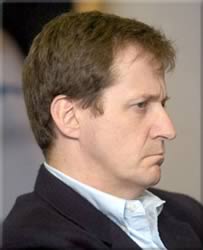Whether it was the pasty tax, the granny tax, the tax on
charitable giving or the abolition of the 50p rate, those looking for something
to criticise in the Chancellor’s package found plenty of things to choose from.
But of all the measures announced by Mr Osborne two months
ago, surely the most pernicious as far as the North-East is concerned was the
proposal to introduce regional pay rates – paying teachers and other public
sector staff in Newcastle less than people doing the same jobs in London.
Far from seeing the prosperity gap between richer and poorer regions as an evil which needs to be addressed, the idea of regional pay takes such inequality as an incontrovertible fact of life and then threatens to institutionalise it throughout the entire British economy.
Despite the efforts of some North-East MPs and union leaders, the proposal has received little national attention up until now, demonstrating once again the London-centricity of our national media.
But that may be about to change. For the question of regional pay now appears to be playing into the much wider political narrative concerning the longer-term future of the Tory-Lib Dem Coalition.
In what can only be seen as a shot across Mr Osborne’s bows, Lib Dem leader Nick Clegg warned this week that his party could not sign up to a policy that would exacerbate the North-South divide.
It seems that regional pay has now joined the growing list of issues, alongside Europe, House of Lords reform and Rupert Murdoch, where the two parts of the Coalition are singing from increasingly varying hymn sheets.
Speaking to the National Education Trust in London Mr Clegg said: “Nothing has been decided and I feel very, very strongly as an MP in South Yorkshire, with a lot of people in public services, we are not going to be able simply willy-nilly to exacerbate a North-South divide.
“I think people should be reassured we are not going to rush headlong in imposing a system from above which if it was done in the way sometimes described would be totally unjust because it would penalise some of the people working in some of the most difficult areas.”
Perhaps the most heartening aspect of Monday’s speech was simply hearing a senior minister – the Deputy Prime Minister no less – talking about the North-South divide again.
It became practically a banned subject under Tony Blair, who first attempted to dismiss it as a "myth,” then tried to con the region into thinking something was being done about it by inventing a spurious target to narrow the gap between the three richest regions and the six poorest.
In one sense, Mr Clegg’s intervention is not unexpected given his own status as a South Yorkshire MP in what is a genuinely three-way marginal constituency.
Mr Blair’s former spin doctor Alastair Campbell has stated that Mr Clegg's only hope of retaining his Sheffield Hallam seat at the next election is to join the Conservative Party, and even making allowances for Alastair’s obvious partisanship, I’ve a sneaking suspicion he may be right,
But in the meantime, it is clearly in the Lib Dem leader's interests to try to put some clear yellow water between himself and the Tories on issues with a particular relevance to the Northern regions.
In view of the Lib Dems’ dismal performance in local elections in the North since the party joined the Coalition in 2010, it is surely not a moment too soon.
Mr Blair’s indifference to the whole issue of regional disparities was partly responsible for the Lib Dems’ dramatic surge in support in the region between 1999 and 2007, with Labour-held seats like Newcastle Central, Blaydon and Durham City briefly becoming realistic targets.
Meanwhile at local government level, the party took control of Newcastle from Labour, and actually managed to hang on to it for seven years before being swept away in the post-Coalition backwash of May 2011.
It will be a long way back for the party to reach those giddy heights again, still further if it is to mount a serious challenge for additional parliamentary seats in the region.
This week, however, Mr Clegg might just have taken the first
step along the road.

